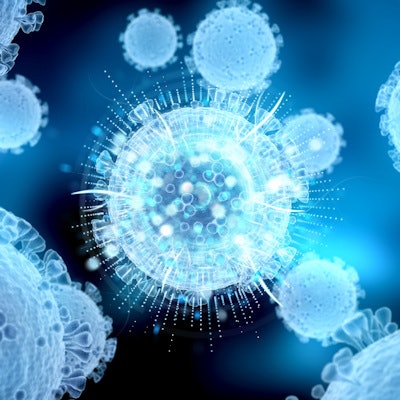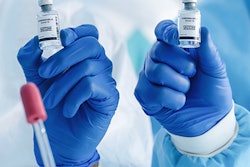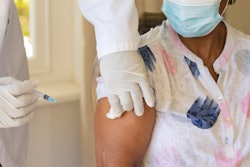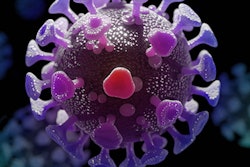
Dental professionals in the U.K. had an increased risk of contracting COVID-19 during the pandemic's first wave, according to a study published on June 2 in the Journal of Dental Research. SARS-CoV-2 antibodies were nearly three times more prevalent in dental professionals than the general population.
Researchers studied 1,507 dental professionals to better understand the occupational risk of contracting COVID-19 before the implementation of new personal protective equipment (PPE) and other infection control guidelines. The participants provided blood samples in June 2020 that the researchers used to look for SARS-CoV-2 antibodies.
A total of 16% of dental professionals had antibodies against SARS-CoV-2, compared with just 6% of the general population at that time. However, receptionists who had no direct patient contact had antibody levels comparable to those of the general population.
The risk of exposure to COVID-19 also varied by race and ethnicity. About one-third of Black participants and 19% of Asian participants had SARS-CoV-2 antibodies, compared with 14% of white participants.
The findings suggest that dentists, hygienists, and other team members who had close exposure to patients had a higher risk of occupational COVID-19 exposure.
"Through our research, we have clearly shown that dental professionals were at increased occupational risk of exposure to SARS-CoV-2 prior to the new ... guidance on PPE," stated co-author Dr. Iain Chapple, PhD, a professor of periodontology at the University of Birmingham, in a press release.
Vaccines vs. natural antibodies
The good news is that study participants with natural SARS-CoV-2 antibodies in June continued to have some protection against COVID-19. More than 70% of these individuals still had antibodies in September 2020 and January 2021, and they had a 75% lower risk of reinfection, the authors found.
The study also highlighted the importance of COVID-19 vaccines -- even for dental professionals with prior infection. No participants with antibodies exceeding 147.6 IU/mL in their blood tested positive for COVID-19 during the study period. But only 5% of dental professionals with SARS-CoV-2 exposure exceeded this threshold on their own.
"This suggests that natural infection alone is unlikely to generate meaningful, durable herd immunity," stated co-author Dr. Thomas Dietrich from the University of Birmingham School of Dentistry.
Furthermore, 98% of dental professionals without previous infection developed an antibody response at least 12 days after their first Pfizer vaccine dose. The response was more rapid and greater in magnitude after a single dose for people with prior infection.
"It is important that we now progress our research to ensure we have an understanding of how people are protected from reinfection with COVID-19 following natural infection and vaccination," stated co-author Dr. Alex Richter, also from the University of Birmingham.
More antibody research to come
The study was the first to examine the occupational risk of exposure to a potentially fatal respiratory virus in a large dental cohort, Richter noted. She stressed that follow-up studies of dental professionals are critical to gain more knowledge about COVID-19 now and in the future.
"The nature and duration of immunity in these cohorts will be critical to understand as the COVID-19 pandemic progresses, particularly with respect to the efficacy of vaccination strategies -- single dose, multiple doses, vaccine combinations -- and in relation to novel viral variants of concern," Richter stated.
The focus on dental professionals for future studies is also important because dentists and hygienists routinely perform aerosol-generating procedures that are thought to increase the risk of SARS-CoV-2 exposure.
"The occupational health measures that have been put in place in general dental practice as a consequence of COVID-19 appear to remove that increased risk, however, this will need to be thoroughly investigated to see if they have successfully interrupted transmission of SARS-CoV-2 and other respiratory viruses," Chapple stated.



















